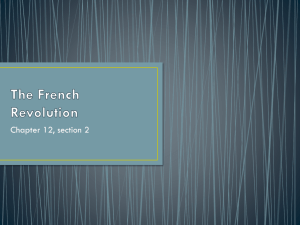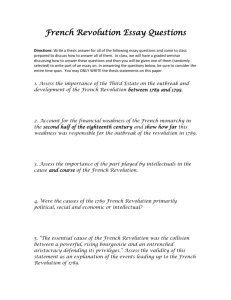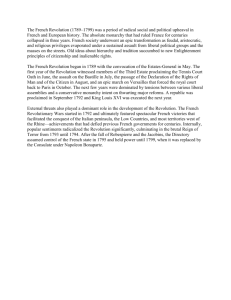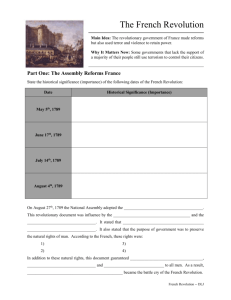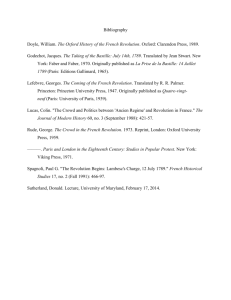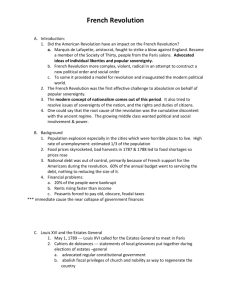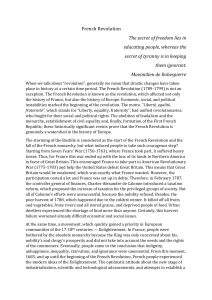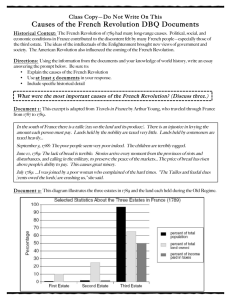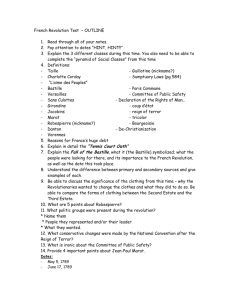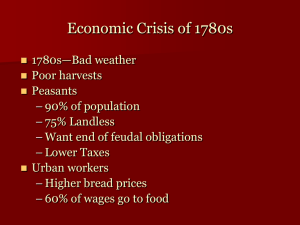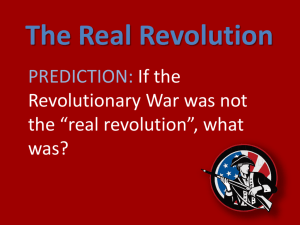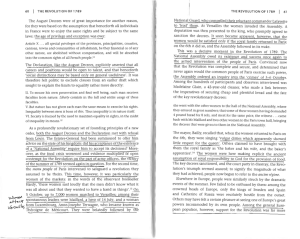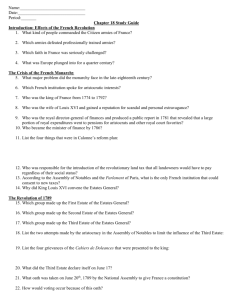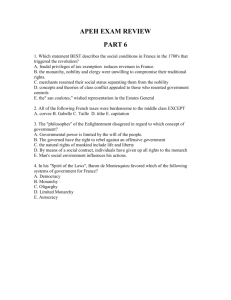Decade of Revolution by Crane Brinton
advertisement
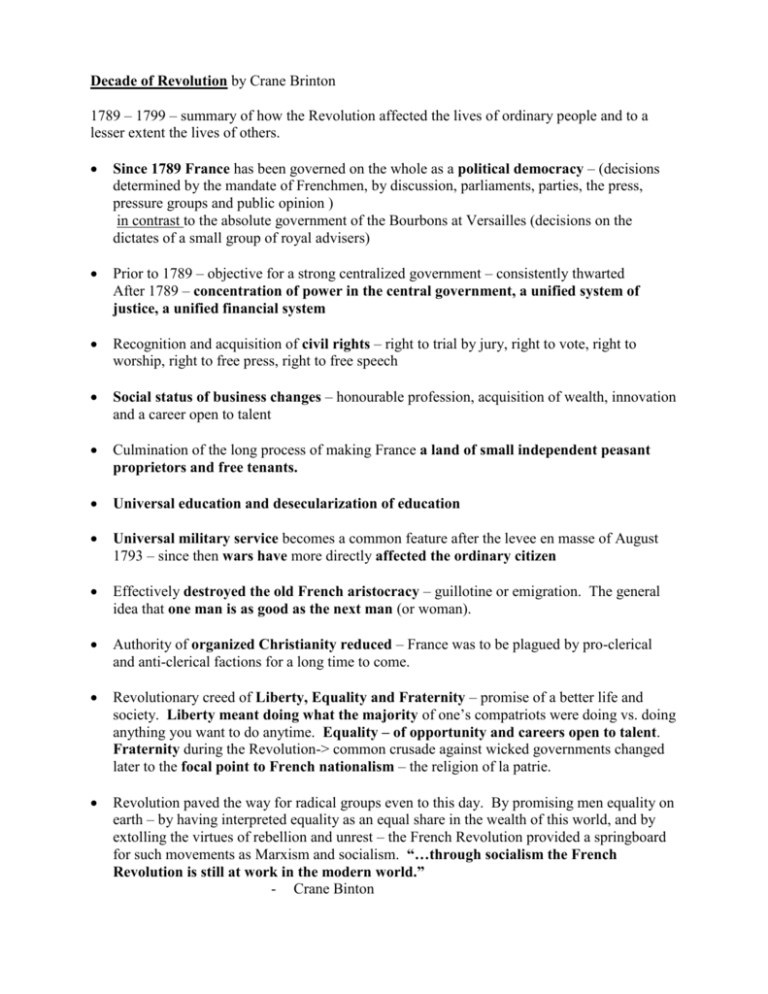
Decade of Revolution by Crane Brinton 1789 – 1799 – summary of how the Revolution affected the lives of ordinary people and to a lesser extent the lives of others. Since 1789 France has been governed on the whole as a political democracy – (decisions determined by the mandate of Frenchmen, by discussion, parliaments, parties, the press, pressure groups and public opinion ) in contrast to the absolute government of the Bourbons at Versailles (decisions on the dictates of a small group of royal advisers) Prior to 1789 – objective for a strong centralized government – consistently thwarted After 1789 – concentration of power in the central government, a unified system of justice, a unified financial system Recognition and acquisition of civil rights – right to trial by jury, right to vote, right to worship, right to free press, right to free speech Social status of business changes – honourable profession, acquisition of wealth, innovation and a career open to talent Culmination of the long process of making France a land of small independent peasant proprietors and free tenants. Universal education and desecularization of education Universal military service becomes a common feature after the levee en masse of August 1793 – since then wars have more directly affected the ordinary citizen Effectively destroyed the old French aristocracy – guillotine or emigration. The general idea that one man is as good as the next man (or woman). Authority of organized Christianity reduced – France was to be plagued by pro-clerical and anti-clerical factions for a long time to come. Revolutionary creed of Liberty, Equality and Fraternity – promise of a better life and society. Liberty meant doing what the majority of one’s compatriots were doing vs. doing anything you want to do anytime. Equality – of opportunity and careers open to talent. Fraternity during the Revolution-> common crusade against wicked governments changed later to the focal point to French nationalism – the religion of la patrie. Revolution paved the way for radical groups even to this day. By promising men equality on earth – by having interpreted equality as an equal share in the wealth of this world, and by extolling the virtues of rebellion and unrest – the French Revolution provided a springboard for such movements as Marxism and socialism. “…through socialism the French Revolution is still at work in the modern world.” - Crane Binton
